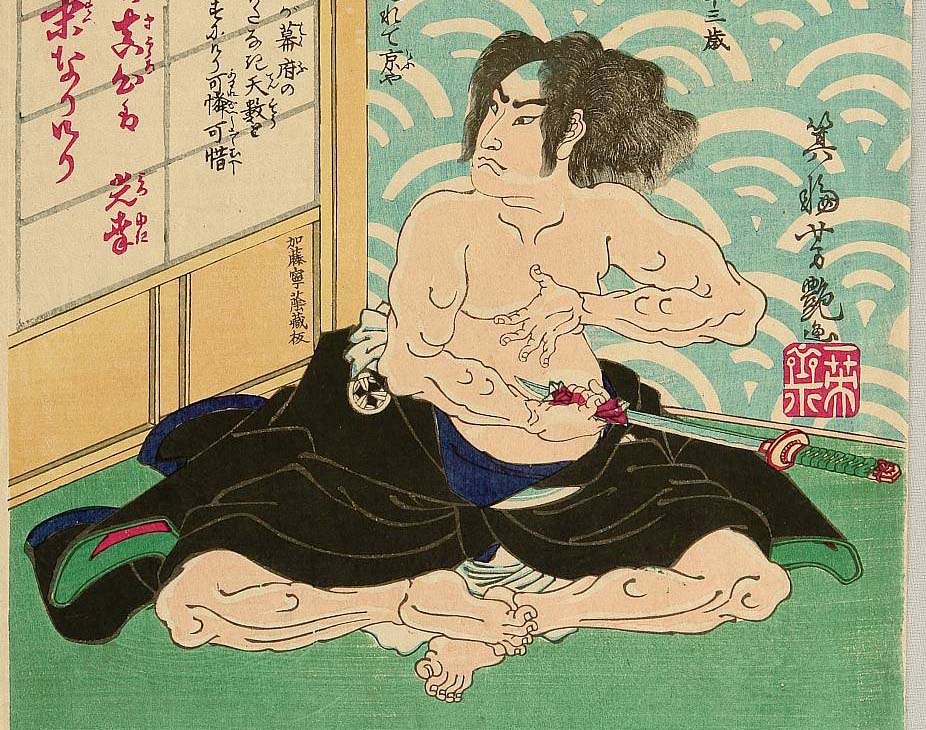What exactly is bushido ?
If you are interested in Japanese culture or feudal Japan, the term Bushidō is not unknown.
Bushido is a traditional code of honor and ethics followed by the samurai , the warrior class in ancient Japan. The word " busido " literally means "way of the warrior".
This code of honor is based on seven moral values, this path provided guidance for life until death.
This code emphasizes virtues such as courage, loyalty, honesty, self-discipline and respect.
Bushidō mean ?
Bushidō in the kanji system is a word derived from the Chinese “ wu shi dao ” which literally means the way of the warrior. If you translate it into Japanese it consists of 3 characters, the first 2武士form the term bushi , the brave warrior, and the third or last道, dō the way.
This immediately indicates clearly what it is, guidelines or manual of the way of the warrior.
When did Bushido originate?
So in 1616, we can find a first work entitled the Kōyō gunkan . But it probably existed much earlier in feudal Japan and was passed down orally. The samurai served the shogun , a Japanese military commander in chief.
The recruited samurais were loyal to their family, clan and leader. The code of conduct was primarily military and based on warrior culture.
Due to the great influence of Shintoism, Zen Buddhism and Confucianism, the moral and spiritual dimension increasingly came to the fore. Especially during the Edo period, when a period of peace began under the Tokugawa shogunate .
The bushido helped the samurai become less warlike due to the moral dimension.
The samurai now also engaged in calligraphy and the tea ceremony. In ancient Shintoism, a religion in Japan, the family and the ancestors occupy an important position. This resulted in the idea that dying or death had to be respectable: dying with honor was considered more important than living in dishonor.
From Zen Buddhism, the search for inner peace, consciously improving yourself and the search for harmony is an important contribution. Zen Buddhism has been associated with the samurai since the Kamakura period . This also shapes the spiritual dimension of the samurai warrior.
Through the influence of Confucianism, values such as righteousness and benevolence have entered bushido . By loyalty unto death and loyalty to the feudal lord. A samuai also confesses “he who serves” and this concept continued until possibly death.
One important aspect of bushido was the use of the samurai sword. The samurai viewed their swords as an extension of themselves and treated them with great respect. The katana sword was not only a weapon, but also a symbol of status and honor. It was often seen as a work of art and years of intensive training were followed to be able to use this sword.
The katana was known for its sharpness and durability. It had a curved blade and was used with the hands. The techniques used in wielding the sword were based on precision, speed and power. Good mastery of the sword was essential for every samurai.
The samurai believed in owning a katana samurai sword carried great responsibility. They had to continually improve their skills and train themselves in the art of swordsmanship. The sword was also seen as a symbol of the bushido code, as its use was subject to strict ethical standards.
If you are interested in the history of Japan or samurai culture, the samurai sword is an important part to understand. It symbolizes not only the physical strength and skill of the warriors, but also their moral code and way of life.
Bushidō and the 7 precepts.
The samurai code of honor consists of the following 7 principles.
義 Gi : justice
You must act fairly and cannot simply attack people or opponents without reason. The samurai behaves sincerely and without hesitation. How does what is right based on its mission. Here is a very famous quote from Taira Shigetsuke from the Edo period (1639-1730): “live when it is good to live, die when it is good to die.”
勇 Yū : courage
A samurai knows no fear and has already accepted his death, hence the connection with sakura or cherry blossom. This creates room for self-control in his weapons. His fight to a possible death is honorable and he has renounced his faith in this. His courage always accompanies him.
仁 Jin : benevolence
The samurai must submit to the feudal system that binds him to his daimyo , or lord. He must also have compassion and put himself at the service of good.
礼Rei: politeness
A very important virtue is politeness , which is often expressed in deep respect. Despite the brutality that is essential for a warrior, a samurai always maintains respect for his opponent.
誠 Makoto : sincerity
Makoto is sincerity. A sincerity in words and actions. You mean and do what you say and are honest, as soon as you don't do this it is dishonorable. It was not necessary to enter into a written agreement with a samurai because giving your word had to be enough: the samurai warrior never lies. This is a form of respect for others.
名誉 Meiyō : honor
A very demanding and strict honor was the samurai 's greatest virtue . There is no room for failure and the only method to restore that honor is ritual suicide. The Japanese warriors committed harakiri (Japanese:腹切り) or Seppuku (Japanese:切腹) which ensured that honor was restored and shame was washed away. It was often performed with a wakizashi by stabbing the abdomen and making an incision in the heart without making a sound. By cutting open the abdomen, the perpetrator completely exposed himself because they assumed that the soul was in the abdomen.

義 Chūgi : loyalty
A samurai is always first and foremost loyal to his daimyo or lord. If the situation were there, a samurai would sacrifice himself until death to serve his master. This was also closely linked to honor.
Bushido after the abolition of the Samurai class
During the Meiji Restoration (明治維新), there was a political upheaval that heralded the end of the rule of the martial nobility in Japan. Yet bushido still has influence in the Japanese modern mind. The way of thinking has had a lasting influence, making politeness and respect important in Japanese culture.
Bushido meaning today
Values that you can find in companies and education to continuously improve themselves, allowing you to reach a high level with your products and services. This drive for effort and flawless organizations with employees who go the extra mile are typical values that arise from the bushido code.
In the martial arts that originated in Japan you will of course also find plenty of elements that clearly stem from the bushido code. While initially the basic concepts such as belligerence and morality were very important, this evolved into self-control and concentration. In karate, jiu-jitsu , Iaido , Shinkendo , Katori Shinden Ryu, of course, also features the virtue of courage, politeness and honor.
Today, bushido is still studied and admired for its principles of honesty, courage and respect. Although the samurai themselves no longer exist, their legacy still influences Japanese culture. It is a complex philosophy with an emphasis on striving for perfection as a warrior. You can also apply this today by striving to become an improved version of yourself.


